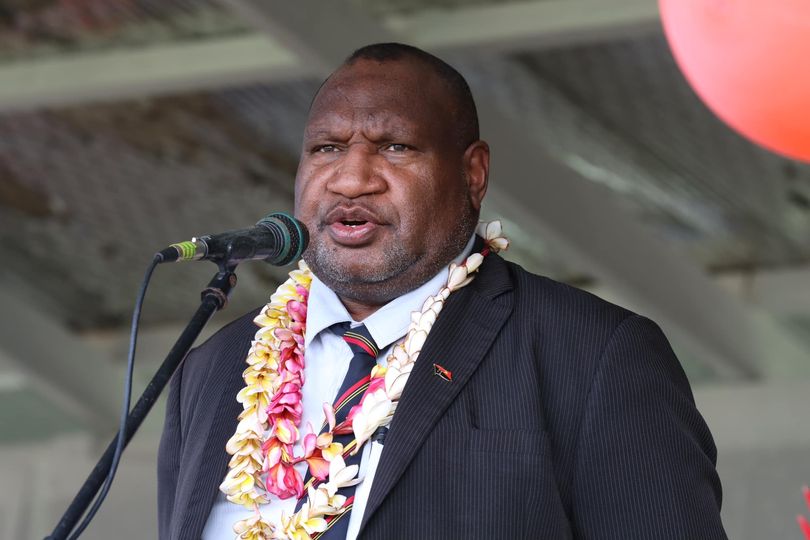An eruption of tribal violence in PNG that resulted in dozens being killed has prompted Prime Minister James Marape to bestow additional powers on the army.
Papua New Guinea will give arrest powers to its military amid an eruption of tribal violence in remote highlands that saw at least 26 men killed in an ambush, Prime Minister James Marape has said.
Papua New Guinea’s police commissioner David Manning is travelling to the scene of the fighting in Enga province, after shocking images of bodies stacked onto a truck circulated on social media in the Pacific Island nation, the toll from an inter-tribal ambush on Sunday in remote Wapenamanda.
In a statement, Manning said it was a “disgraceful act of cruelty”, and the number of dead and injured was still being assessed. An earlier police estimate of 26 was likely to be revised up.
Marape urged highland tribes to find other ways to deal with community disputes instead of killing.
“There is no prize to be engaged in tribal fights… lay down your arms,” he said.
“Youths holding guns” would be arrested and face life in prison, he added.
“To lose one life, let alone many lives does not evade our consciousness and our concern. As prime minister, I am deeply moved by this and very, very concerned. I am very, very angry,” said PM Marape.
A special police unit of up to 200 officers was being formed to deal with “domestic terrorists”, and would be trained in Australia, he added.
The Pacific nation is home to hundreds of tribes, speaking 800 languages, and many still live in inhospitable and remote terrain.
Japan on Monday pledged to fund the purchase of dozens of police vehicles for PNG.
The violence broke out as Foreign Minister Penny Wong and Pacific Minister Pat Conroy announced the government was boosting support for Papua New Guinea with a package aimed at addressing major health challenges including HIV and malaria.
The funding was drawn from the government’s $620 million (US$405 million) Partnerships for a Healthy Region initiative, which will help build up health systems in the Pacific and Southeast Asia.
Senator Wong said Australia would continue to work with its neighbour to meet health challenges.
“We cannot have the peaceful, stable and prosperous region we want without improving the health and wellbeing of our region’s communities,” she said.
SOURCE: SBS/PACNEWS














